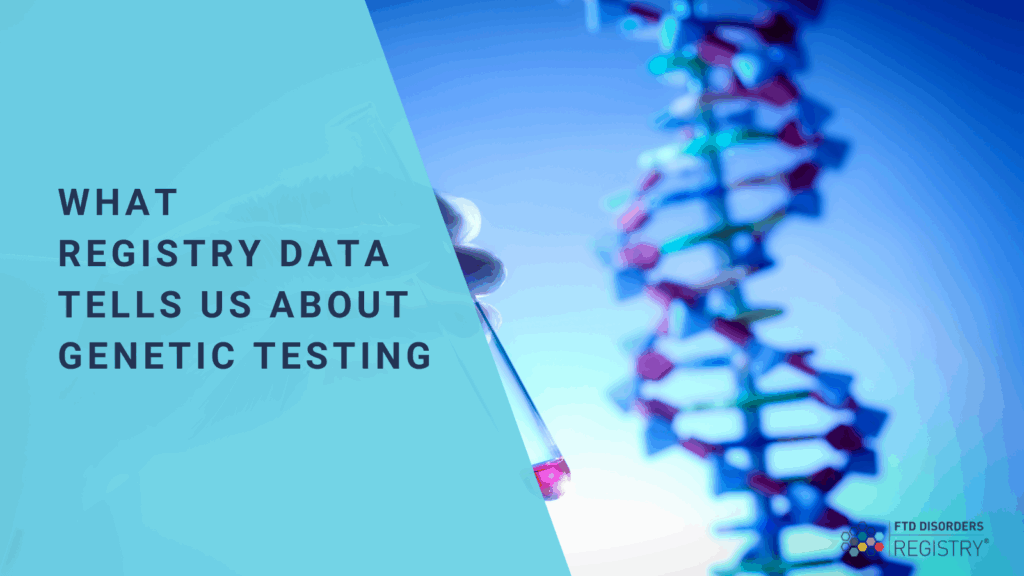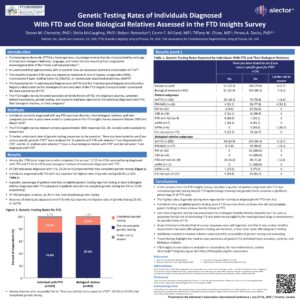PRESS & NEWS
What Registry Data Tells Us About Genetic Testing

Only a fraction of people with FTD and their relatives pursue genetic testing. This World FTD Awareness Week, discover how genetic counseling can guide the way.
When it comes to frontotemporal degeneration (FTD), knowledge is power. One of the most powerful tools available to individuals with an FTD diagnosis and their families is genetic counseling and testing. This World FTD Awareness Week, we are shining a light on what the data tells us about genetic testing and why talking to a genetic counselor should be the first step.
What the Data Shows
According to a recent poster presented at The Alzheimer's Association International Conference 2025 by Devon M. Chenette of Alector, which used FTD Disorders Registry data, genetic testing remains underutilized:
- Only 23.3% of people diagnosed with FTD haveAlector had genetic testing.
- Only 12.4% of their close biological relatives have pursued testing.
These numbers matter because several forms of FTD are caused by inherited gene variants. Genetic information can help families understand risk, guide clinical care, and open the door to participation in clinical trials focused on genetic subtypes of FTD. (View the Poster)
Why Genetic Counseling Comes First
Before deciding to get tested, it is important to meet with a genetic counselor. Genetic counseling helps you:
- Understand the difference between sporadic and inherited FTD
- Explore which tests are available and what they can and cannot tell you
- Discuss the emotional, financial, and insurance implications of testing
- Plan ahead for sharing results with family members
A genetic counselor is your guide through a complex process, helping you make an informed decision that feels right for you and your family.
How This Data Can Drive Change
By collecting and sharing data like this, the FTD Disorders Registry helps researchers, clinicians, and advocates understand gaps in care and education. If most people are not accessing genetic counseling or testing, it means we need to raise awareness, remove barriers, and make sure every person with FTD gets the chance to make an informed choice.
Your Next Step
If you or a loved one has been diagnosed with FTD, consider speaking with a genetic counselor. And if you have not already, join the FTD Disorders Registry. Your participation helps generate the data researchers need to improve care, access to counseling, and testing rates.
Together, we can turn awareness into action and build a future where every person with FTD has the information they need to navigate their diagnosis.
Together we can find a cure for ftd
The FTD Disorders Registry is a powerful tool in the movement to create therapies and find a cure. Together we can help change the course of the disease and put an end to FTD.
Your privacy is important! We promise to protect it. We will not share your contact information.




